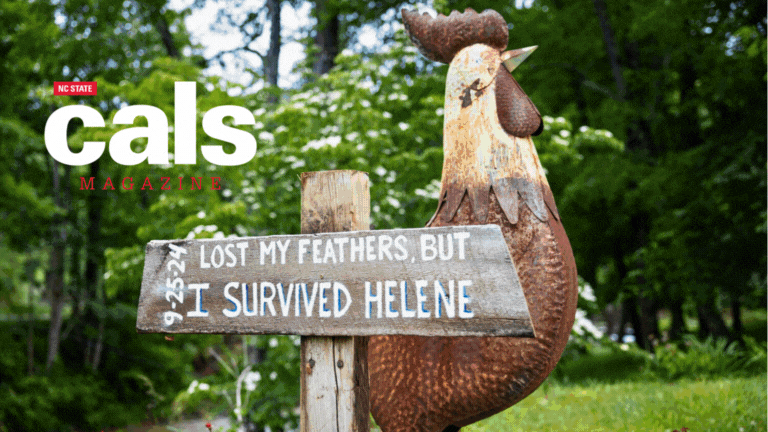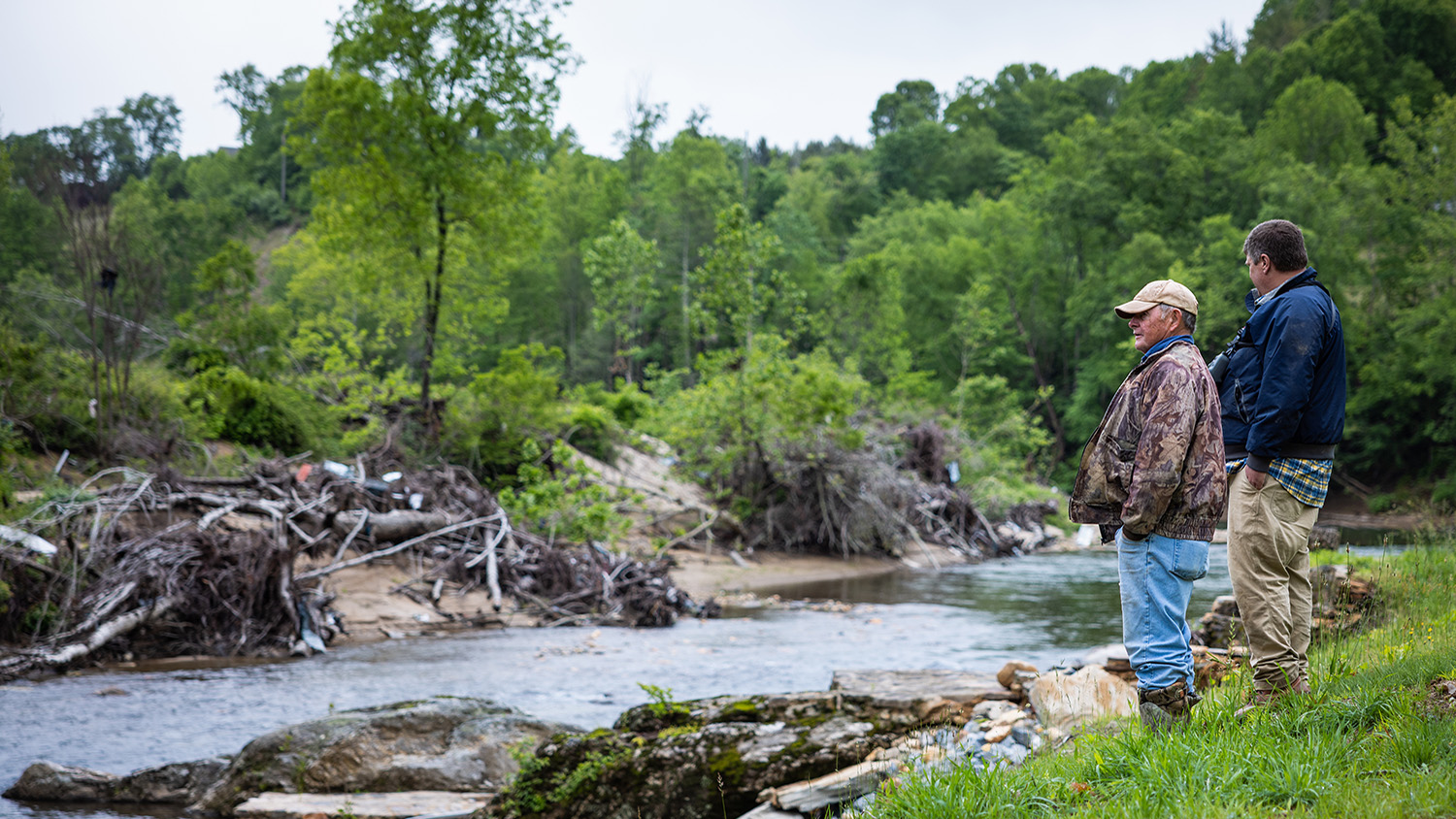Opening Doors
The new Wolfpack Connect program, which includes 11 CALS majors, provides a guaranteed admissions pathway to NC State for North Carolina community college students.

For some, going to a four-year college right after high school is the expected next step. For others, the road to a bachelor’s degree looks a little different. Maybe they’re unsure of their career path. Perhaps they’re stalled navigating a competitive admissions landscape. Or perhaps the cost of tuition is a factor.
Ben Snell and Luke West are among the students who started out at one of North Carolina’s 58 community colleges before transferring to NC State and CALS.
In the selective world of college admissions, Snell was not accepted to NC State as a freshman. An FFA teacher connected him with David Crouse, now the associate dean and director of CALS Academic Programs, who offered him another path through a pilot program between CALS and select community colleges.
“He explained how this program would allow me to transfer to NC State with no problems as long as I followed certain criteria,” recalls Snell, who graduated from Orange High School in Hillsborough, North Carolina. “This is when I chose to take classes at Wake Tech Community College.”
After graduating from high school in Pikeville, North Carolina, West enrolled at Wayne Community College instead of applying to a four-year school. With deep family ties to agriculture, he wanted to remain close to home and help out on his family’s farm.
“This pathway offered a smoother transition from high school to the demands of a large university,” West says. “The smaller class sizes and varied teaching styles helped ease that shift and prepared me for the next step.”
Both Snell, who earned his bachelor’s degree in turfgrass science in 2024 and is now pursuing a master’s degree in plant pathology, and West, who is in his senior year in CALS as an agronomy major, say their experience transferring to NC State was a smooth one, thanks to skilled advisors and a lot of planning.
“The amount of support I received was absolutely amazing,” Snell says.
Connecting Pathways to CALS
To make the transfer process from the state’s community colleges to CALS as seamless as possible, Crouse plans to build on a new universitywide initiative called Wolfpack Connect, which will provide a guaranteed pathway for North Carolina community college students to transfer to NC State.
Launching in the fall of 2025, the program aims to offer another entry point to the university from participating community colleges. Eligible majors through Wolfpack Connect from the College of Agriculture and Life Sciences include:
- Agricultural Education
- Agroecology
- Biological and Agricultural Engineering Technology
- Bioprocessing Science
- Crop and Soil Sciences
- Food Science
- Horticultural Science
- Natural Resources, Soil, Water and Land Use
- Nutrition Science
- Plant Biology
- Poultry Science
The goal for CALS, says Crouse, is to open the door to more students, particularly from rural communities, who want to pursue agriculture and life sciences degrees.
“We know that access is the biggest challenge, especially for our rural communities, and we want to change that narrative.”
The university wants to have a scalable program with partnering community colleges that offers more students from across the state an NC State education.
“We know that access is the biggest challenge, especially for our rural communities, and we want to change that narrative,” says Don Hunt, NC State senior vice provost for Enrollment Management and Services. “I don’t think some students in rural communities feel like they even have a shot at NC State, and we want to let them know, ‘Yes, you do, and here’s how you can get here.’”
NC State’s colleges can choose which majors are eligible for Wolfpack Connect based on demand and academic criteria. CALS will prioritize high-need majors such as poultry science, turfgrass science, agricultural education and food science. Students participating in the Wolfpack Connect program must complete their associate’s degree to receive guaranteed admission to NC State.
The initiative expands on the university’s digital Transfer Planner tool, which helps students at any of North Carolina’s community colleges map out how their coursework will transfer to NC State and meet degree requirements. Community college students can use the tool from Day 1 to ensure every course they take — or plan to take — aligns with the required courses for their intended major at NC State.
To ensure that community college students transfer into their preferred CALS major on schedule, Crouse envisions offering more support to Wolfpack Connect students, including focused advising, potential cross-registration of courses and regular communication.
“We are the largest university in the state of North Carolina, and we are the land-grant university, which means we are the people’s university,” Crouse says. “We want to develop a path for more students to get into the people’s university.”
Broadening Possibilities
Snell and West hope that a clearer path for transferring to NC State will empower more North Carolina community college students to expand their horizons.
“I highly recommend earning an associate’s degree from a community college,” says West, noting he’s thrived since transferring to NC State, including earning a 4.0 GPA. “It can significantly improve your chances of admission and ensures that you’ve completed the necessary coursework.”
And students shouldn’t worry about the route they take to get there, Snell says. A bit of advice from Crouse when he was considering whether to transfer from Wake Tech still rings true more than five years later.
“David Crouse told me the first time we met, ‘You don’t have to get in somewhere by the front door because there are other doors that you can use to get in.’”
With Wolfpack Connect, another door to NC State and CALS will be wide open.
- Categories:


